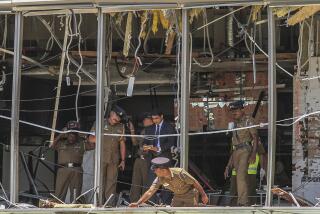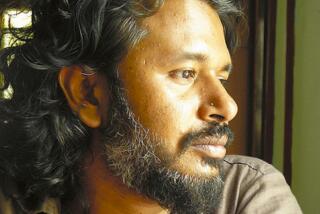Sri Lanka
- Share via
William McGowan’s article “Sinhalese Backlash Threatens Peace, Sri Lanka’s Future” (Op-Ed Page, Aug. 21), seems to attempt to blame the Buddhist monks for the continuing troubles in Sri Lanka.
In the Philippines, Cardinal Jaime Sin led the people in opposition to President Ferdinand Marcos. In Korea, Christian clergymen have encouraged and supported the people in their struggle against a repressive regime. In Latin America, the Catholic clergy has long supported the downtrodden. So we wonder why McGowan seems to object to the Buddhist monks in Sri Lanka doing the same.
McGowan should know that Buddhism, while traditionally a state religion in Sri Lanka and in several other Asian countries during the past 2,500 years, has never been an instrument of warmongering or power struggles. Buddhism has always respected the co-existence of other religions. It has never associated itself with a particular ethnic group, race or caste, and has never considered itself superior.
In the United States, there are many examples of clergymen who have taken an active role in politics, even going so far as to run for President, like the Rev. Jesse Jackson or the Rev. Pat Robertson. However, in Sri Lanka’s almost 2,300 years of Buddhist history, not a single Buddhist monk has sought or held any official government post, nor do they have any interest in doing so. It is true that monks have rebelled from time to time for the freedom of the nation and the freedom of Buddhism.
Finally, McGowan’s reference to Sri Lanka’s “uneducated masses” is rather insulting to a country whose people have the second highest literacy rate in Asia, after Japan.
WALPOLA PIYANANDA
THERA
Chief Monk and President
of Dharma Vijaya Buddhist
Vihara
Los Angeles
More to Read
Sign up for Essential California
The most important California stories and recommendations in your inbox every morning.
You may occasionally receive promotional content from the Los Angeles Times.













